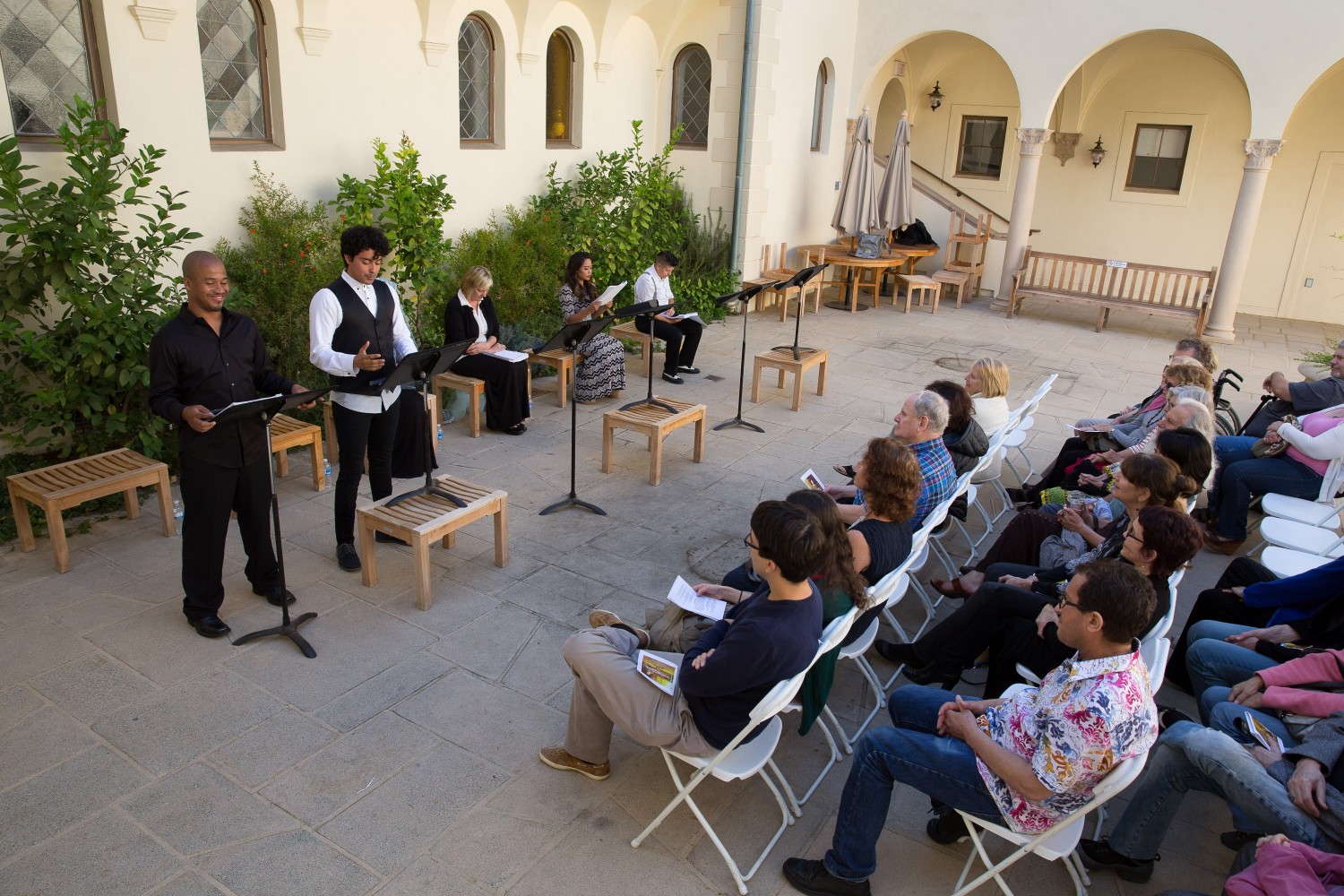
August 13, 2019
UCLA Working Group to Present at the Stratford Festival in Canada

Rhonda Sharrah READ MORE
July 1, 2019
Comedia Meets Improv in Collaboration with UC Riverside
Laura Muñoz

June 12, 2019
Diversifying the Classics Visits CSUN
As part of our ongoing outreach to local universities, members of the Comedia in Translation and Performance Working Group visited Cal State Northridge READ MORE
February 21, 2019
Love in the Woods: Isabella Andreini’s La Mirtilla
What better way to kick off Amore’s holiday than a pastoral romp of mismatched lovers, gods, satyrs, READ MORE
February 21, 2019
La Celestina at Repertorio Español
On behalf of UCLA’s Comedia Working Group, Marta Albalá Pelegrín, Aina Soley Mateu, and Paul Cella have written subtitles READ MORE
January 22, 2019
Announcing Comedia Slam 2019
Thanks to a new grant from the UCLA Arts Initiative, next fall Diversifying the Classics will be presenting our first Comedia Slam, a one-day event that will pair staged readings of translations with roundtable conversations on interpretation, performance, and staging. READ MORE










